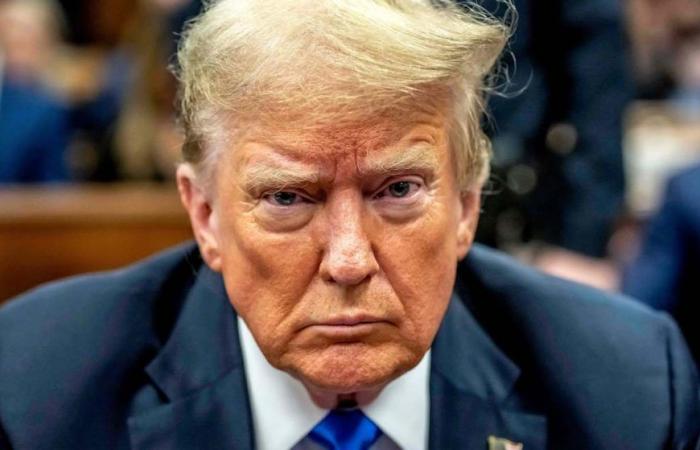Donald Trump is known around the world for shooting left and right. On many occasions, his impulsiveness generates volatility in the markets and that is liked by a handful of investors specialized in operating with fast money. These operators are looking forward to the return of the Republican to get back on the most frenetic wave in the market.
In the run-up to the first face-to-face electoral debate between the president and the former president, the market is trying to anticipate how a possible reissue of the Trump government could affect interest rates or the electric car industry, among other examples. However, for hedge funds that come into play when volatility reigns, those prospects are of no interest.
For investors who make money quickly it is simpler: they just wait for the former White House tenant’s outbursts. His interventions generate opportunities in the markets and a simple tweet can cause a roller coaster ride on stocks, bonds or currencies.
“Beyond politics, if you ask an investor if they prefer a placid Biden or a stormy Trump, they would go for the wild, that is, Trump,” in the words of Calvin Yeoh, manager of the hedge fund Blue Edge Advisors , to Bloomberg. “He’s more volatile and unpredictable,” he adds.
In any case, during the Biden years there has been no shortage of volatility either. Rising inflation, Russia’s invasion of Ukraine and rising interest rates have disrupted markets during his tenure. In fact, some indicators of expected volatility have turned out to be higher than expected under the Democrat. But Biden has a predictable and traditional style, of press conferences and measured statements, while Trump plays more to surprise from social networks.
A larger source of volatility is yet to materialize. First, there are four months left until the elections and the markets are busy adjusting expectations of the Federal Reserve (Fed) rate cuts. Despite this, the prospects of a context of greater volatility before the November elections are already on the table, especially if the votes were equal.
“There is a consensus that Trump is going to generate volatility,” says Vineer Bhansali, founder of the Californian manager LongTail Alpha. “The market already discounts that possibility. The surprise would be if Trump wins and that implies less volatility,” he adds.
His victory in 2016 shook the debt market. The yield on the 10-year U.S. bond, the T-Note, rose nearly a percentage point through December, reflecting that his tax-cutting plan could trigger rate hikes from the Fed. In 2017, a single intervention on social media sank Puerto Rican bonds after suggesting, after the hurricane that hit the island, that the country’s debt was worthless and that the losses should be recorded.
Shortly after, Amazon’s shares were hit by criticism from Trump, who did not like the agreement that the technology company signed with the US Postal Service to deliver packages. Threats to China and the trade war with the country They scrambled equities and currencies in 2019. In fact, in August 2019, the S&P 500 fluctuated more than 1% in half of the sessions that month. Investors were baffled.
Although investors who operate with fast movements and shakes have it easy with Trump, there are more traditional firms that analyze fundamentals and the long term that also hope to cash in on the presidential candidate’s outbursts.
“The noise generated by Trump creates opportunities,” acknowledges Carol Lye, manager at Brandywine Global Investment Management. An example was the fall and subsequent recovery of the Mexican peso in 2016 when the Republican boasted of his plans to build a wall on the border.
There is still time left in the campaign, but Republicans have already said they want to renew the tax cuts they launched in 2017 and Democrats have admitted they want to keep some of them before they expire next year. On the other hand, Trump is promising more deportations of immigrants and tariffs of 60% on China and 10% on the rest of the world. That move could mean more inflation and a pullback in rate cut expectations.
In fact, regarding the US central bank, some unofficial Trump advisors They have raised the idea of removing control from the organization and give the president more power to monitor the Fed. Although this is not part of the official campaign, if this ends up being proposed, the bond market will react to possible political pressure to make monetary policy more flexible.
“We have to talk about the elephant in the room. We all know that if Trump wins, anything he says will be amplified in the United States and in the world,” thinks George Boubouras, head of analysis at the hedge fund K2 Asset Management. “We markets love volatility, although we try not to get too caught up in the emotion that his presidency would bring,” he concludes.






